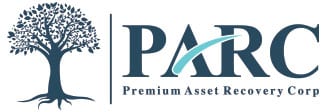The Role of Medical Debt Buyers in Healthcare 2023

Revenue Cycle Management (RCM): A Step-by-Step Guide for 2024
November 14, 2023
The Relationship Between Medical Factoring and Cash Flow
November 28, 2023In the intricate healthcare industry, various players work together to provide quality care to patients. Though medical debt buyers are often overlooked, they hold a crucial role in keeping the system running smoothly. In this guide, we’ll discuss the importance of medical debt buyers and their benefits to healthcare providers and the entire industry.
Definition and Role of Medical Debt Buyers
What Exactly Is a Medical Debt Buyer?
Simply put, a medical debt buyer is a business that buys unpaid medical bills from healthcare providers. Unlike traditional debt collectors, who take over debt accounts on behalf of the original creditor, medical debt buyers purchase the debt outright. This means they pay healthcare providers upfront, often at a reduced rate, and then take on the responsibility of collecting the debt themselves.
Their Role in Healthcare
Medical debt buyers have a multifaceted role. They do more than just buy unpaid bills; they also manage the complex process of medical debt collections. Doing so removes the time-consuming task of collecting debt from healthcare providers, affording them the time and resources to focus on delivering quality care to patients.
How Medical Debt Buying Benefits Healthcare Providers
Immediate Cash Flow and Financial Relief
One of the key benefits is immediate liquidity. Medical debt buyers purchase self-pay medical debt and provide instant cash to healthcare providers. This is especially beneficial for small practices and rural hospitals struggling with cash flow.
Risk Mitigation and Financial Security
After purchasing the debt, the medical debt buyer takes on all the risk related to collecting it, becoming a “non-recourse debt buyer.” This is advantageous for healthcare providers as it removes the financial risk of non-payment and bad debts from their books.
Reduced Administrative Burden
Healthcare providers often lack the resources and expertise to manage debt collections efficiently. Selling debts to a medical debt buyer can considerably lessen administrative overhead, reduce staffing needs, and minimize the costs associated with collections.
Streamlining the Revenue Cycle for Healthcare Institutions
Speeding Up the Cash Cycle
Medical debt buyers contribute to improving Revenue Cycle Management (RCM) by settling debts more quickly than traditional collection methods. By doing this, they help speed up the cash cycle, a critical component of financial management for healthcare providers.
Refocusing Resources on Core Competencies
By alleviating the burden of debt collection, healthcare providers can channel their resources into improving patient care, upgrading facilities, and training staff. It enables healthcare providers to concentrate on what they do best—taking care of patients.
The Importance of Medical Debt Buyers in Financial Stability
Enhancing Industry Reputation through Ethical Practices
Good debt collection practices don’t just recover money; they also help maintain a healthcare provider’s reputation. Medical debt buyers who adhere to ethical standards can enhance the industry’s overall standing, which is a competitive advantage.
Regulatory Compliance and Ethical Concerns
Medical debt buyers operate within a framework regulated by federal and state laws, adding protection for healthcare providers. Compliance with these laws ensures that debtors are treated fairly and ethically throughout the collection process.
Conclusion
Medical debt buyers play a vital role in healthcare. By providing immediate financial relief, reducing uncertainties, and improving revenue efficiency, these agencies assist in securing the financial stability of healthcare providers. This allows healthcare providers to focus on their mission of delivering patient care rather than spending time on revenue management.
Tools and Resources for Further Reading
ACA International: A great resource for credit and collection professionals, offering valuable insights and support.
HFMA: The Healthcare Financial Management Association provides extensive guidelines for the effective management of healthcare revenue cycles.
RevCycleIntelligence: This platform offers in-depth insights into all aspects of revenue cycle management, providing valuable information for healthcare providers looking to optimize their operations.
For more customized advice, it’s always beneficial to consult directly with a specialized medical debt buyer or a debt purchasing agency that understands the unique needs and challenges of your healthcare institution.
To learn more about purchasing medical debt, contact PARC here!


